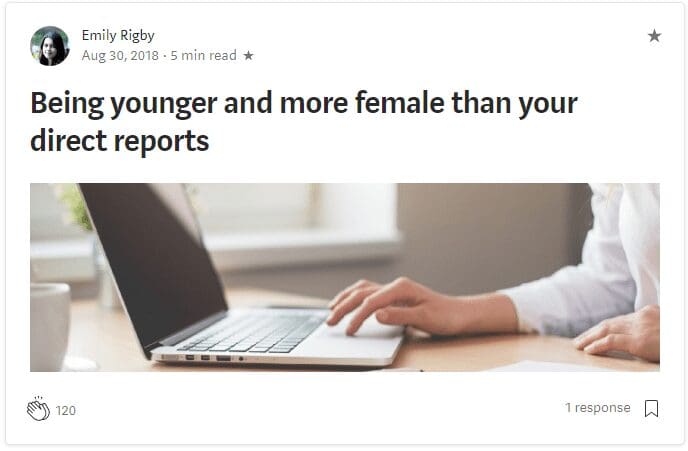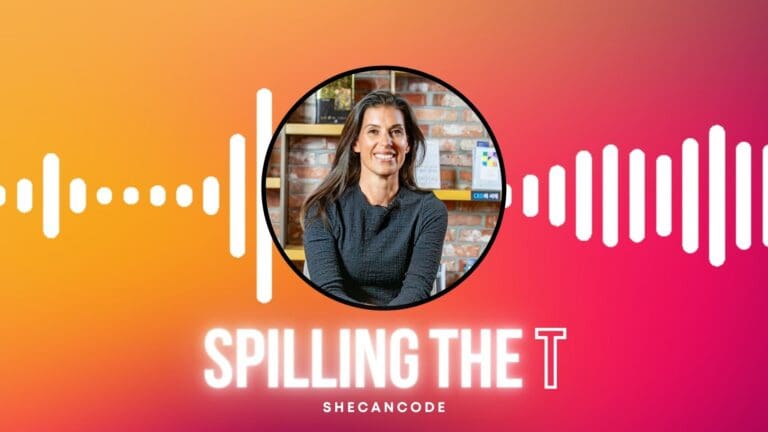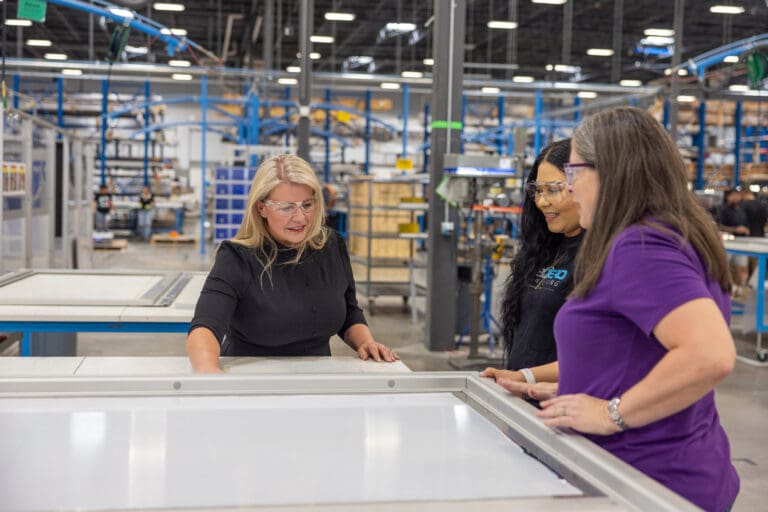We recently caught up with Emily Rigby on her tech journey so far. She shared with us some amazing tips for building your network, tackling imposter syndrome, the importance of male allies… and so much more.
So, how did you get into tech?
I actually followed a pretty traditional path. I did an A level in computer science, then a degree. My parents were both programmers, so I was brought up with that mindset. I never saw programming or computer science as “something for the boys”.
I sent my first email at two weeks old! It was just never a question of whether or not I would go into tech.
What is it about tech that you love?
For me, it feels like a great leveller! I can work in any industry. Tech is everywhere. You can work in one industry and because your tech skills are so transferrable, you can then easily work in an entirely different industry.
Also – there’s a neatness to it. It solves problems in a clean way. As a Manager, I get to solve problems both with coding and with conversations – with my team. This in turn enables them to continue solving problems most effectively.
How do you think we can get more women into tech?
I believe the role men can play here is huge. We, as women, already know we need more of us in tech. Women led conversations, communities and events are important, but we need the help of men. Male leaders need to contribute to the conversation, highlight the issues and amplify our stories.
So how can men help?
Become allies and mentors for women in technology. We should be encouraging men to actively learn how to be a good ally. There’s a lot of training and reading out there, readily available. One of the best examples I have seen is asking men in the workplace: “when was the last time you felt like the odd one out?”. That understanding is key.
What advice do you have for women in tech, on tackling imposter syndrome?
Acknowledgement
It’s crucial to acknowledge that everyone has experienced imposter syndrome; male, female, junior, senior.
Also, acknowledge and accept what you’re not good at, without judgement. It’s key to remember that absolutely nobody is good at everything. Be clear what you can do and what you can’t, but you can work out the answers as you go!
This is about trust. Trust yourself and your team. Ask questions again and again. Say when you don’t know something. You absolutely don’t need to know everything. Remember that lack of knowledge is not a weakness.
Delegation
I’m not here to have all the answers, as a developer as a manager. Every day I find myself in a situation where I don’t know something. Even as a Head of Engineering, I haven’t seen every problem. I’m always taking on challenges that are new to me. Yes, I learn along the way – but I also enable other people in my team to work efficiently and find out the answers we need together.
Uniqueness
Comparing yourself to someone further along in their career journey is so dangerous and doesn’t achieve anything. You have your own set of skills, they have theirs. There’s no comparison to be made.
Do you have any advice for women in tech on the importance of a network and how to build it?
I’m such an advocate of building your network. You can start within your own workplace. How? Ask questions, constantly. Getting second opinions on projects. As a woman in tech, you are already memorable as there are few of us! So you can create an impact by actively getting to know people you work with.
Influence doesn’t have to mean being an ‘influencer’ in the way social media portrays it.
Wielding influence can be producing something that can be useful to people. You don’t have to be an extrovert to have influence in your workplace or industry. Remember: the creator of Linux was an introvert. He created something valuable that people wanted to use and influenced a generation.
Join communities. Listen, too! Participate in projects. Find people who care.
You’ve risen to Head of Engineering in less than seven years. It’s an impressive achievement!
Have you faced any challenges as a young Woman in Tech in a senior role?
Sure, but what I tell myself and others is (as mentioned already) I don’t see myself as having all the answers. My role now requires me to have a higher level, broader perspective. I have developed the skills to encourage people and collaborate effectively. I’m not trying to convince anyone that I know anything. I have written some great code in my time, if I do say so myself! But there’s so much out there still to learn.
For me, as a Manager – it’s self-reflection first. I acknowledge what I can do and bring other people in and help them develop along the way. There’s no shame in that, at all.

What do you think companies can be doing to help drive better female representation in tech?
- Connect with specific Women in Tech recruitment companies and organisations to support them and advertise roles.
- Look at job descriptions, interview and promotion processes to reduce bias.
- Ensure existing management are getting second opinions on performance reviews and salary adjustments to ensure fairness.
- Continue to ask “Are we doing the right thing, can we do better?”
- Ensure senior leaders are clued up on diversity issues and are visible advocates
Finally: What’s the best piece of career advice you have ever received?
Don’t try and be the same as anyone else, you will never be able to achieve exactly what someone else has done in exactly the way that they did it. If you try you will only become frustrated and unmotivated!








